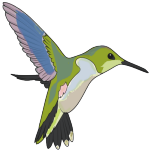Special Son
The caring words of a little boy with autism have special significance for his adoptive mother, in this heartwarming and inspirational personal adoption story.
Through our tears of joy and words of gratitude to an exceptionally brave and beautiful teenage birth mom, we barely heard the nurse say, "9.9 on the APGAR."
We did, however, hear the doctor's voice loud and clear two years later declaring, "Autism. Your son has a pervasive development disorder."
For years, he could speak only with his sea-blue yes. In those days, his laugh sustained me, and I was certain that, if bottled, it would further the cause of world peace. It started in his perfect toes and bubbled its way up to his porcelain cheeks. When released, he would forget the noisy world around him and actually look into my eyes. Otherwise, face-to-face contact was simply too painful for him.
Life was always hard for our little buddy. Like sunburned skin, his precious heart was ultra-sensitive to the rhythm and rawness of the world around him. He felt it intensely, but could not interpret it fully.
Analytical intensely creative, and spatially brilliant, there was a mysterious neurological disconnect in his brain regarding relationships and communication. The intuitive ability to grasp social interactions and interpret nonverbal language entirely eluded him.
His inner frustration was painfully visible. You could actually feel the unresolved tension between his strong mind and his uncooperative tongue. "Special need," the doctor said, and all of the specialists nodded their heads.
Though correct, the professionals failed to mention that special needs always sing a delightful duet with special strengths. My son's perspective on life is both profound and unique.
When he was a toddler, I ached to hear him speak. Then, as he turned three, one by one, words started falling slowly like thick, magnificent raindrops:
Strawberries were called "Elmos" (for red reasons).
"O" was bologna because it was shaped like an O (of course).
Our slightly ditzy kitty, Mittens, was simply called "uhm" (which is how I felt most of the time I watched her).
And vacuums were known as "dadoos" (because it is something that daddies should do - a catchy, reasonable notion. I even considered contacting Webster's …)
Then, around age four, our beloved son began piecing words together. His first original sentence brought me to tears. "Daddy is amazing," he declared. So true.
Later, he announced, " I have a free will!" Yes, my young philosopher.
When he was five, he turned to me and whispered, "Mommy, my nose stopped running."
"Good!" I said, grateful that his red nose might have a chance to recover. Then he added with all seriousness, "Yes, now it's just walking."
My son has always had an artist's eye for colors. I am Mexican and American Indian, my husband is of German descent, and our baby girl is biracial. One day when he was six, my son looked at our skin tones and explained, "Mommy's red. Daddy's green. Baby's purple. And I'm golden delicious!"
Around six and a half, he started being able to hold brief conversations. Here is one of his first:
"Mommy, what shape is free will Is it like a circle?" he asked one night as we snuggled together for a cuddle time.
"Yes, it's sort of like a circle," I replied cautiously.
"Is it like a car?" he pressed.
"Well, it's like gas in a car. If a car has gas, it can choose to turn left or turn right. But if the car doesn't have gas, it can't choose to turn. Free will is like the gas. Because we have it, we can decide to make good choices or bad choices."
"Oh." He paused. "Sometimes I get a flat tire."
That night, I feel asleep with a grin, pondering the theological significance of flat tires.
But our most touching conversation to date occurred recently around a campfire. The talk started with a few concerns I shared about being careful near fire. My son asked what would happen if he accidentally fell into the fire, and I responded that he would be badly burned.
"Would I die?" he asked.
"You might," I said quietly.
"Then I would go to heaven?" he continued.
"Yes, but it's not time for you to go to heaven yet. Mommy needs you here."
My son paused for several minutes, deep in thought, and then he said, "Mommy, when you are dying and God comes to take you to heaven, I will carry you. I will hold you."
I could barely speak. Even now, I can barely type. Staring into his sea-blue eyes, I realized that I was the one with special needs. I desperately needed to be more like my special son.
Something in his words that day capsulated our love as mother and son. Over the years, his special tenderness has transformed me. So when I do enter heaven one day, I will be able to say with sincerity, "My son helped carry me here."
